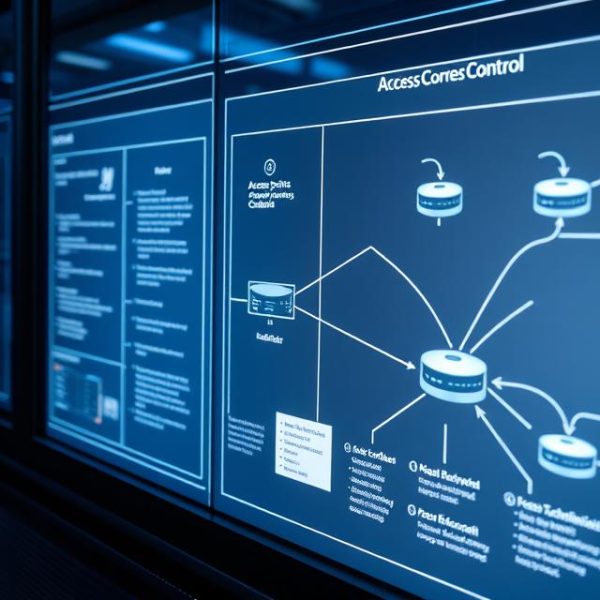Computer Science
Computer Hardware
-
Must-Have Tools for Computer Hardware Maintenance
Keeping your system running smoothly requires the right equipment. Specialized gear helps prevent damage, ensures safety, and boosts efficiency. Whether you’re a DIY enthusiast or a professional, selecting proper components is key. Industry reports show that using correct instruments reduces repair costs by up to 40%. Anti-static wrist straps, precision screwdrivers, and thermal paste are…
-
Essential Tips for Maintaining Your Computer Hardware
Proper maintenance keeps devices running smoothly and extends their lifespan. Studies show regular upkeep can add 5-8 years to a PC’s usable life. Neglecting basic care often leads to performance issues or costly replacements. Security plays a vital role in hardware protection. The 2017 Verizon report revealed 81% of breaches involved weak credentials. Combining physical…
-
What Is Hardware in Computer Terms? Explained Simply
Computer hardware refers to the physical parts of a computer. These components are crucial for turning electronic signals into useful computing functions1. They include processors, memory modules, and other tangible elements. A computer’s performance relies heavily on its internal hardware. The central processing unit (CPU) and random access memory (RAM) are especially important1. Different users…
-
A Beginner’s Guide to Understanding Computer Hardware
Computer hardware forms the physical foundation of modern digital technology. These essential components are the tangible building blocks that enable computing devices to function. Understanding computer hardware basics provides crucial insights into how technology operates. Computer hardware includes a range of physical devices that work together. They process, store, and manage digital information. A comprehensive…
-
What Hardware Issues Can Cause a Computer to Freeze?
Computer hardware issues can turn a smooth digital experience into a frustrating nightmare. All users will face system freezes at some point. Understanding these issues is vital for effective PC troubleshooting. Modern computing relies on complex hardware components working together seamlessly. Critical hardware interactions affect system stability. Even minor disruptions can cause unexpected freezes. Freezing…
-
Key Hardware Priorities for Building the Ultimate Gaming PC
Building a gaming PC needs careful thought about several key parts. These include gaming PC components and hardware priorities. A well-balanced system is key for playing demanding games and apps. This article will guide you on picking the right hardware for your needs. Creating a strong gaming PC means knowing the value of each part….
Computer Networks
Computer Systems
-
Exploring Different Types of Computer Operating Systems
Operating systems serve as the backbone of modern computing, bridging the gap between hardware, software, and users. They manage resources, streamline processes, and provide a seamless interface for interaction. Since the 1980s, the evolution of these systems has revolutionized how humans interact with devices. Today, operating systems come in various forms, from widely-used platforms like…
-
Step-by-Step Guide to Installing an Operating System on a New PC
Setting up a Windows OS on a fresh PC ensures smooth performance from day one. With over 1 billion users globally, Microsoft’s platform remains the top choice for reliability and compatibility. This guide simplifies the process into nine clear steps, from preparing your USB drive to final optimizations. Over 827,000 readers have successfully followed similar…
-
Essential Safety Precautions When Working Inside Computer Systems
Working inside computers demands careful attention to safety protocols. Technicians must handle delicate components with precision and use proper protective measures1. Electronic parts are sensitive to the environment and human touch. Good safety practices shield both technicians and costly hardware from harm. Understanding these protocols reduces risks during technical work2. Proper preparation is vital before…
-
How to Check Your Computer’s System Requirements
Computer specifications are vital for optimal performance and software compatibility. PC hardware specs detail your computer’s internal components and capabilities1. Knowing system requirements prevents performance issues and ensures smooth operation of demanding programs2. Most users struggle to understand their hardware requirements. A staggering 75% can’t accurately check their system specifications2. This often leads to troubleshooting…
-
How to Check Which Operating System Your Computer Is Running
Knowing your computer’s operating system is vital for top performance and compatibility. An OS manages hardware, runs programs, and provides a smooth digital experience1. Different devices require specific methods to identify OS details. Windows, macOS, and Linux each have unique ways to check versions1. Most modern computers use 64-bit operating systems for better performance and…
-
Cisco UCS Explained: Unified Computing System Basics
Cisco UCS is a solution that combines compute, data network access, and storage into one system. It offers high agility and scalability for workloads. This Unified Computing System aims to cut costs and improve scalability, perfect for today’s data centers. It centralizes switching resources, reducing network fragmentation. This leads to fewer devices needed. Cisco UCS…











































